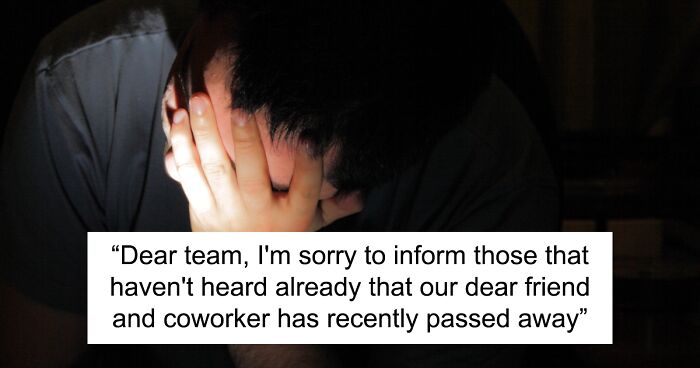
Worker Shares Email Which Says They Might Be Fired For Discussing Colleague’s Passing, And It Goes Viral
InterviewGo read any of your job contracts or manuals and you’ll probably see there is nothing to address the death of a coworker. At least there wasn’t when the World Trade Center collapsed and several thousand grief and crisis counselors were sent like D-Day infantries ready to help tens of thousands of mourning workers.
No matter how close you were to your colleague(s), it’s a messy affair through and through. Also, a tragedy that might just reveal the real face of your managers and out-of-touch, ‘Don’t let the productivity slide down, people!’ bosses.
Dealing with the passing of a coworker is a difficult and emotional business
Image credits: Ferran Moya (not the actual photo)
Today, there are as many decent companies that have an appropriate infrastructure to handle the death of a colleague (like Google) as there are tone-deaf ones. The workplace that u/comrade-linux‘s friend works in is clearly on the wrong side of the tracks.
As far as the email that was shared on r/antiwork goes, it’s a clear indicator that some workplaces and managers should go through appropriate training before handling such cases. “If you need a moment to grieve, please feel free to clock out and spend some time in the break room,” an email that was sent to the whole staff reads. So far, so good… But not a moment passes before the same email changes its tone to corporate and reminds everyone that grieving should not get in the way of the team’s efficiency.
Pssst! Want to read more stories like this? Check this and this out!
And yet, this email shows that some companies simply can’t be bothered to care about all that
Image credits: Midwest People’s History
This is what people had to say about this situation in the comments
Many leaders will tell you that a colleague’s death is not something they’re coached on in leadership trainings and company handbooks. And knowing that the global death rate has increased by nearly 17% since 2019, when the not-so-novel pandemic (soon to be endemic) began, it mustn’t have increased their confidence in riding the team through these deadly ages.
In order to find out if many leaders and companies struggle with this universal problem, we reached out to Gianpiero Petriglieri, an associate professor at INSEAD Business School and one of the 50 most influential management thinkers in the world.
“In most organizations, grief and mourning are still considered a taboo,” Petriglieri told Bored Panda. “That’s why there are two cases: in the first, there’s at least some recognition from management’s perspective that it needs to be addressed.” On the other, he told us, management tries to brush it off and “pretend like nothing happened.”
Petriglieri then pointed out how the majority of modern companies approach navigating the following weeks after a colleague’s passing. “Whether it’s a book of memories or a space dedicated for grieving and sharing how everyone feels about it—having some kind of ritual is a must.” He says that this helps the bereaved workplace to process the loss of their colleague in a much faster and healthier way.
Turns out, that’s already been scientifically proven. As Francesca Gino, an associate professor at Harvard Business School found out in his experimental research, rituals indeed alleviate and reduce grief—even among people who don’t fully believe in them. No wonder, then, why Japanese and Chinese workers start their mornings with collective singing.
“It’s paradoxical that the more you openly acknowledge it, the easier it is for everyone to process it and eventually move on with the work,” Petriglieri said. But that’s easier said than done: as this research found, almost 70% of managers don’t like engaging with their employees. Talk about giving grieving colleagues a hug or a day off.
“Managers often say, ‘This organization is a community.’ Or, ‘I want us to have a relationship of complete openness and trust.’ How they deal with colleague’s passing is a way to show how genuine their statements are,” Petriglieri pointed out. In other terms: are you simply a cog in a well-oiled, money-making machine or an actual part of the family?
After all, “moments like these are exactly when you can show your humanity as a manager,” Petriglieri reminded. It doesn’t mean that as a manager, you have to sacrifice productivity in order to heal the entire workplace. The support lies in simple things: attention and understanding. “Giving the deceased coworker’s family a call or a visit, sending them a card.”
I like how the guy truly thinks he wrote a respectful but sensible piece while he is basically just a greedy a**hole in love with capitalism.
I worked at a restaurant years ago where a cook hung himself in the backroom one night after closing. The opening crew found him. An hour or so later, the manager was harassing the coroner, demanding to know when the body would be taken away so he could open. He even tried to make the staff clock out while they waited. Someone alerted the media about his response and he was fired the next day.
This is the complete opposite of my company. Sadly one of my colleagues passed away last year of Covid. We had a big dept meeting where we were told the news. After the meeting we were allowed to take some time to process the news and that there was help available for those who wanted it. The company also set up a donation page where the money will go to my colleague's mother. The CEO wrote a tribute post the next day on our Yammer site with a bit about our dept grieving and to be kind. We were also encourage to talk to each other about our deceased colleague if we wanted to.
I'm glad they were so compassionate. One of my co-workers Erin lost everything in a house fire. It was a few weeks before Christmas. We would "adopt" a needy family. That year the secret Santa adopted Erin's family and the company donated a large sum of money, as did most of the staff. We also donated clothes, shoes, household items to name a few. Erin and her family were sooo touched.
Load More Replies...I like how the guy truly thinks he wrote a respectful but sensible piece while he is basically just a greedy a**hole in love with capitalism.
I worked at a restaurant years ago where a cook hung himself in the backroom one night after closing. The opening crew found him. An hour or so later, the manager was harassing the coroner, demanding to know when the body would be taken away so he could open. He even tried to make the staff clock out while they waited. Someone alerted the media about his response and he was fired the next day.
This is the complete opposite of my company. Sadly one of my colleagues passed away last year of Covid. We had a big dept meeting where we were told the news. After the meeting we were allowed to take some time to process the news and that there was help available for those who wanted it. The company also set up a donation page where the money will go to my colleague's mother. The CEO wrote a tribute post the next day on our Yammer site with a bit about our dept grieving and to be kind. We were also encourage to talk to each other about our deceased colleague if we wanted to.
I'm glad they were so compassionate. One of my co-workers Erin lost everything in a house fire. It was a few weeks before Christmas. We would "adopt" a needy family. That year the secret Santa adopted Erin's family and the company donated a large sum of money, as did most of the staff. We also donated clothes, shoes, household items to name a few. Erin and her family were sooo touched.
Load More Replies...

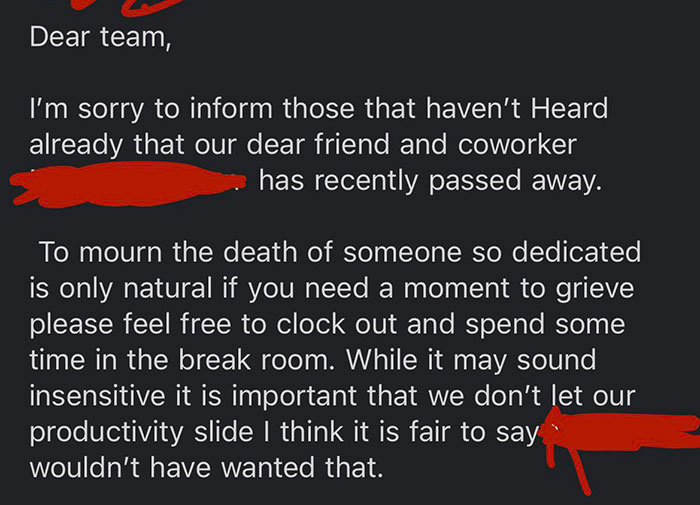
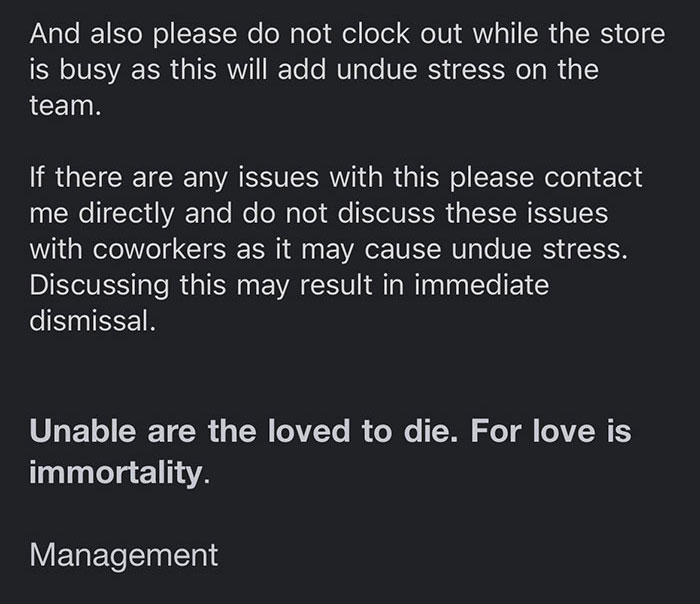
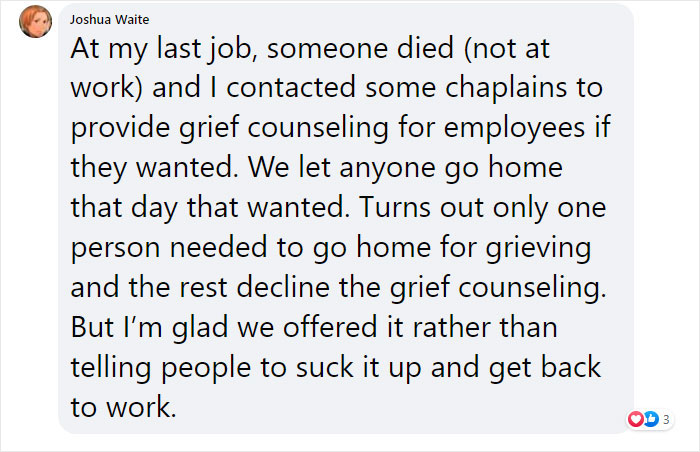
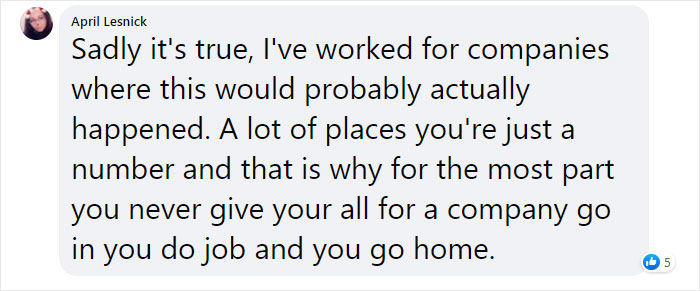
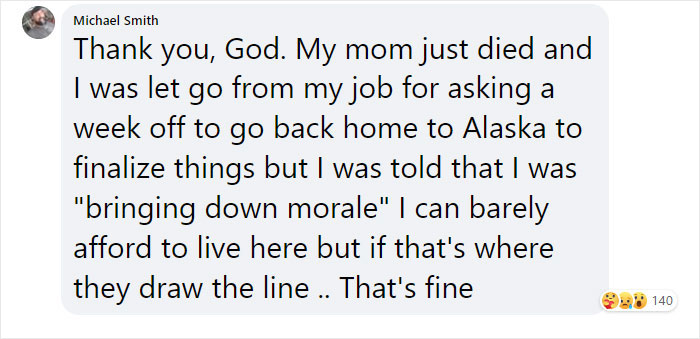
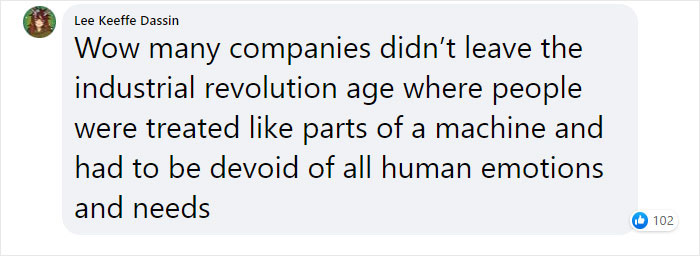
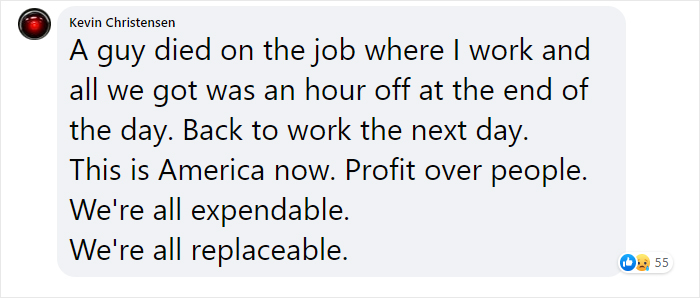
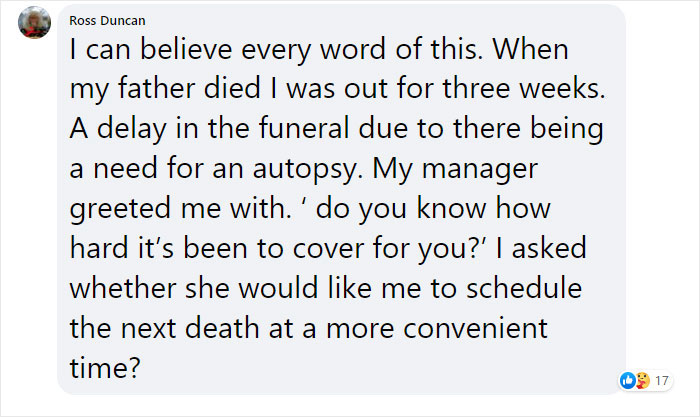

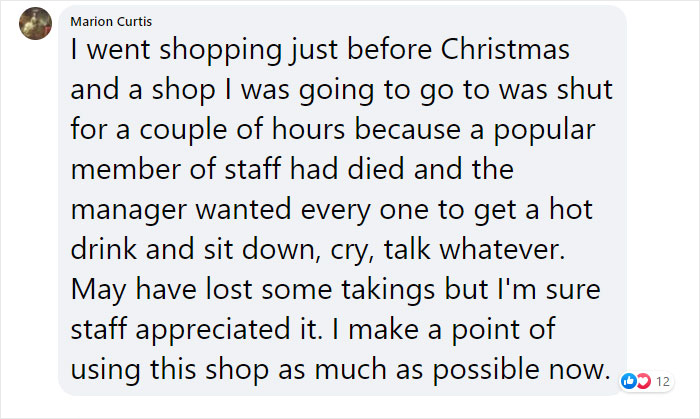
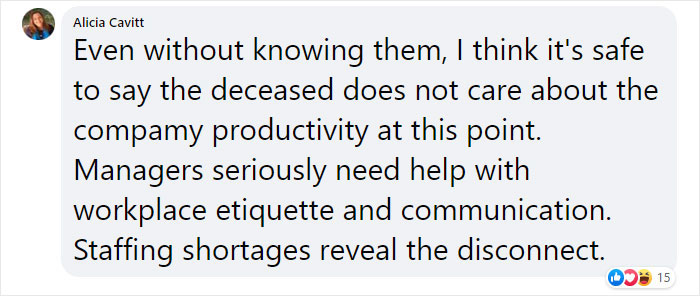

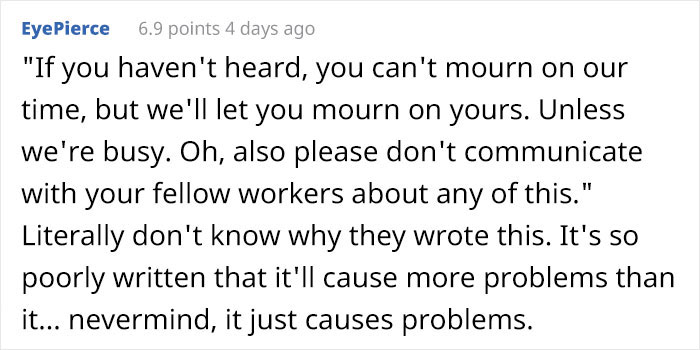
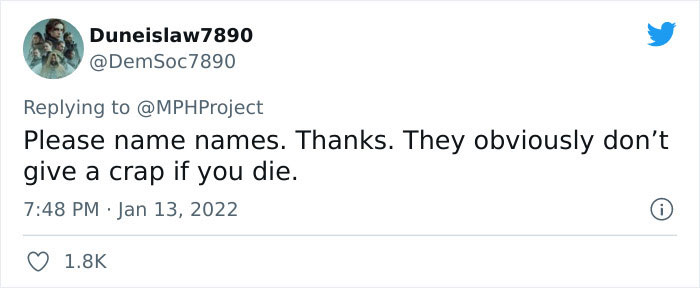
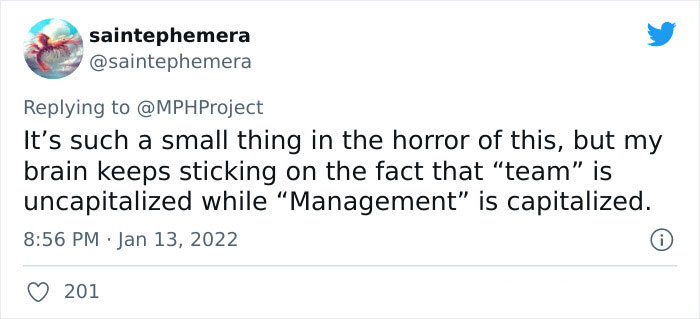
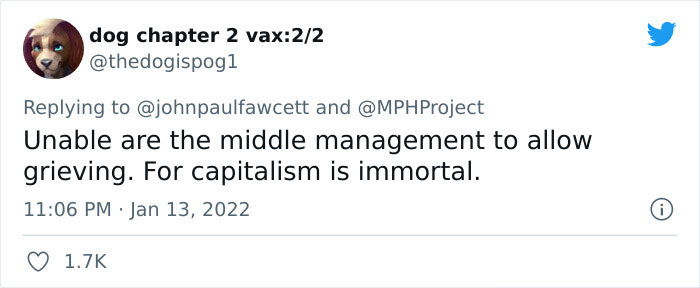
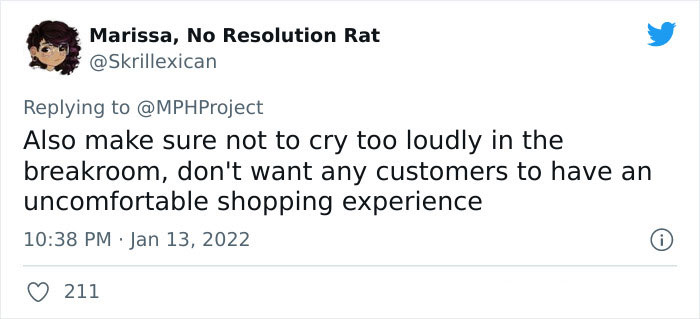

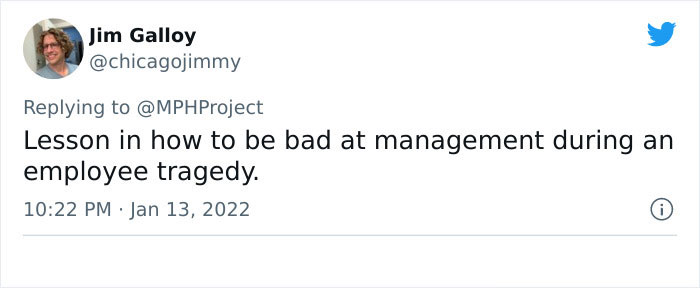




72
28